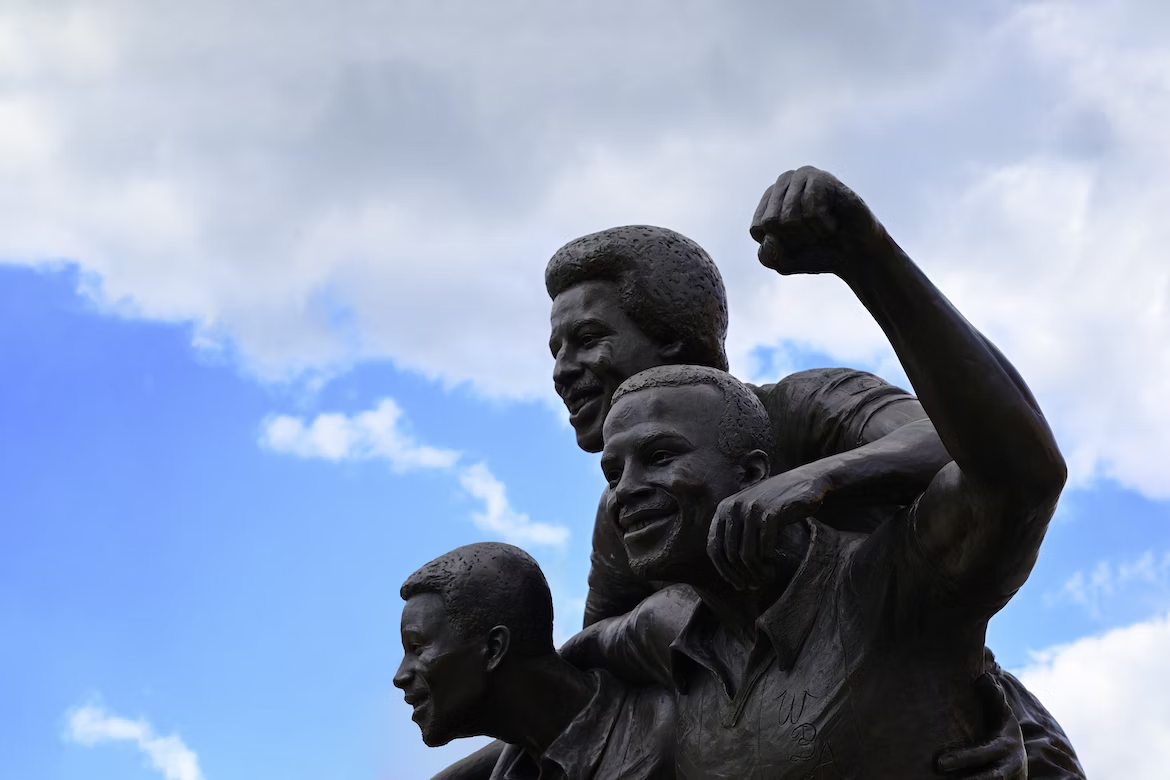Football and Society: Examining the Role of the Sport in Culture and Politics
Since their inception, sports have been an integra

Since their inception, sports have been an integral part of culture and politics. Throughout history, games have provided catharsis for people to express their emotions as a form of national or cultural identity.
From the gladiator battles in ancient Rome to the FIFA World Cup today, nations all around the world take pride in winning or being a contender on the global stage. Moreover, victories and losses in these events are celebrated with gusto by different societies depending on how it ties into other socio-political issues that matter deeply to them.
This blog post will seek to examine how the sport is used as a reflection of societal values through examples from countries across the globe while providing insight into its complex role at the intersection between culture and politics.
Introducing the Role of Sport in Culture and Politics
Sport has long been an integral part of human culture and politics, serving as a unifying force for people across communities and nations. From the Olympics to the World Cup, sporting events have the uncanny ability to bring people together, transcending the barriers of language, nationality, and background.
At the same time, sports can also be a reflection of the political and social issues of the time, with athletes, teams, and fans alike using their platforms to raise awareness and advocate for change.
Whether it's a protest during the national anthem or a symbolic act of solidarity, the sport has the power to speak volumes about the state of the world we live in.
Exploring the Impact on Social Change
Sport has undoubtedly played a significant role in driving social change throughout history. It has served as a platform for individuals and groups to not only voice their opinions and promote their causes, but also to bring communities together in a shared pursuit of a goal. From the civil rights movement in the United States to the recent Black Lives Matter protests, athletes have been instrumental in raising awareness about social injustices and pushing for change.
The power of sport lies in its ability to cut through barriers of race, gender, class, and religion, providing a level playing field where people can unite under a common cause. While the impact of sport on social change may not always be immediate, it is vital in creating a world where everyone can thrive.
Examining the Economic Impact of Sports on Communities
Sports have become an integral part of communities, showcasing local talent while uniting individuals with a common passion. Beyond the excitement of a game, sports also generate significant economic activity that can contribute to a community's growth. From jobs created by sports facilities and events to the increase in tourism and consumer spending, the economic impact of sports cannot be ignored.
Such impacts can be seen in the construction of new arenas and stadiums, the hiring of local businesses to provide concessions and services, and the influx of visitors to the area.
Additionally, people betting on sports has become increasingly popular in recent years because it has the potential to create more economic opportunities for those who engage in it, as well as increase tourism and consumer spending. Whether you use Xbet promo code to get a bonus or make your wagers, sports betting can provide an additional source of income for those interested in taking part. In a small town or a big city, sports can have a positive effect on the local economy, providing a boost in revenue and creating a sense of pride in the community.
Analyzing the Changes in Sports Policies
Sports policies are constantly evolving and adapting to changing circumstances. Analyzing these changes is crucial for understanding the impact they have on athletes, teams, and entire sports industries.
Professionalism is key when discussing these policies, as it involves understanding the complexities and nuances that go into creating and modifying rules and regulations. Delving deeper into the reasoning behind certain policies and their intended outcomes can provide valuable insight into the direction that sports are heading in.
Ultimately, the goal of analyzing changes in sports policies is to create a stronger, more equitable, and inclusive sporting environment for everyone involved.
Understanding the Relationship Between Sport and Political Participation
Participation in sports and political activity are two activities that are often viewed as being separate from each other, however, recent research has shown that these activities are intricately linked. The relationship between sports and political participation is multifaceted and complex. Sports can help develop valuable skills such as teamwork, communication, leadership, and problem-solving. These skills are essential in both sports and politics.
Furthermore, sports can act as a platform for social and political change. Athletes can use their platforms to draw attention to important social and political issues, and in doing so, can inspire others to become more politically active. This has been evident in recent years, with athletes using their status to raise awareness of issues such as police brutality and racial injustice.
Investigating the Relationship Between Sport and Education
The link between sports and education has long been studied and debated by experts in both fields. Many view sports as a valuable tool for building essential skills such as discipline, teamwork, and determination, which can have a positive knock-on effect on academic attainment.
There is also evidence to suggest that physically active students tend to have better attendance rates and higher self-esteem and report lower levels of stress. However, some argue that too much emphasis on sports can detract from academic achievement and perpetuate inequality, particularly in terms of funding and resources.
This complex relationship between sports and education requires further investigation and consideration, but there is no doubt that sports can play a crucial role in fostering a well-rounded and successful student.

It is clear to see that the role of sport in culture and politics cannot be understated. It has the power to influence social change, encourage equitable policies, and improve economic development in any community. Furthermore, it can drive political participation in a country and help reduce educational disparities between different demographics.
As such, its importance should not be overlooked. It was essential throughout history and continues to be so today—and likely will remain so far into the future.







